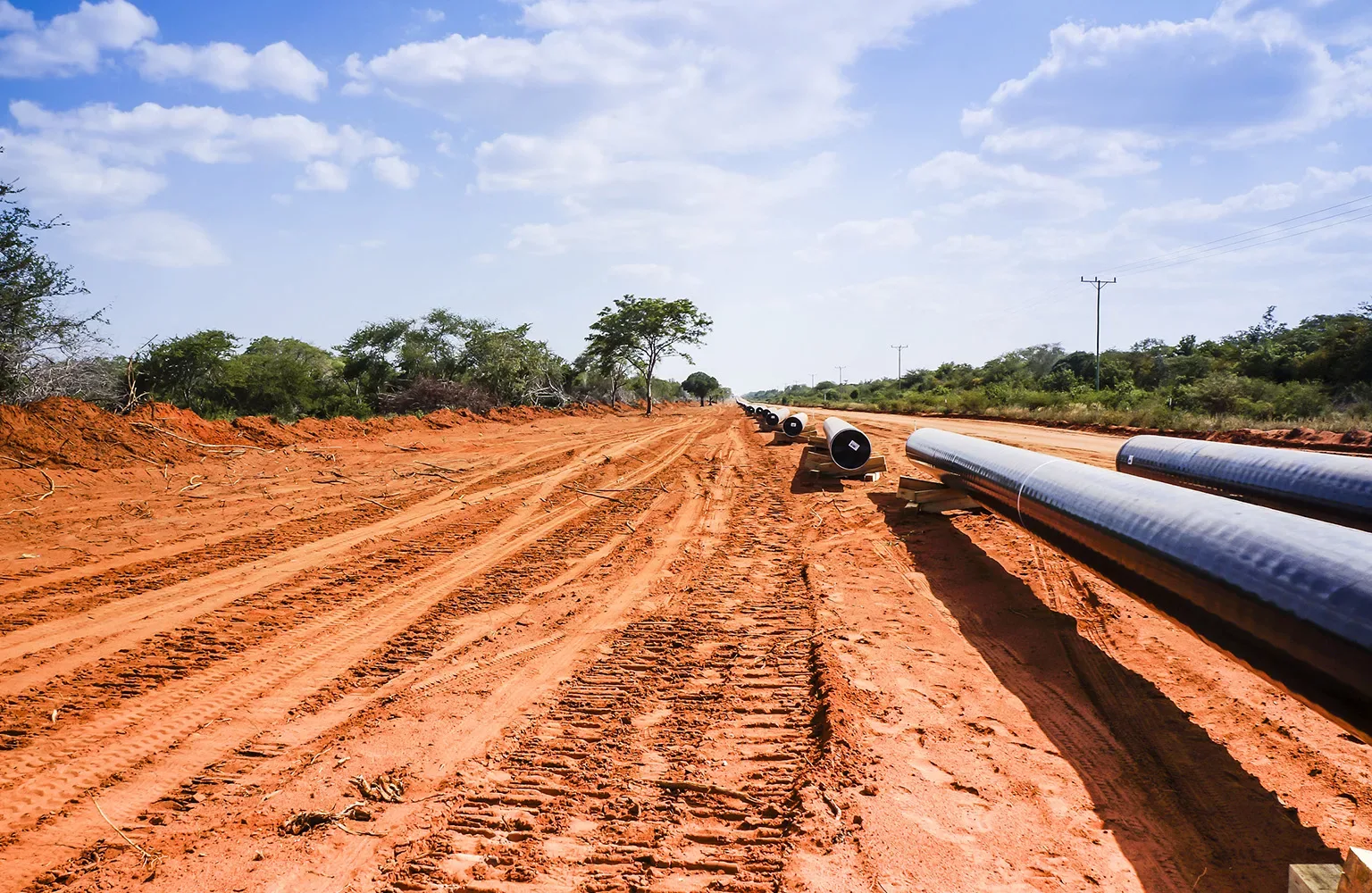LEADING SECURE GAS SUPPLY
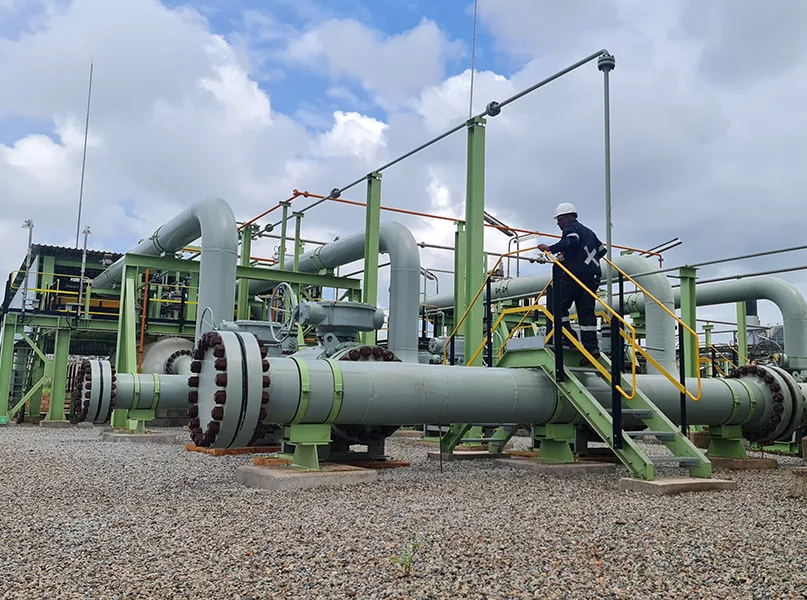
DILIGENTLY MEETING DEMAND
Following its establishment, there was a cross-border agreement signed between the two countries’ governments to manage how the gas molecules would be sold.
A concession license was then granted in 2001, which gave ROMPCO the right to construct, own, and operate the pipeline from Temane to Secunda in SA, spanning 865 kilometres (km) and transporting 120 to 126 petajoules (PJ) per annum.
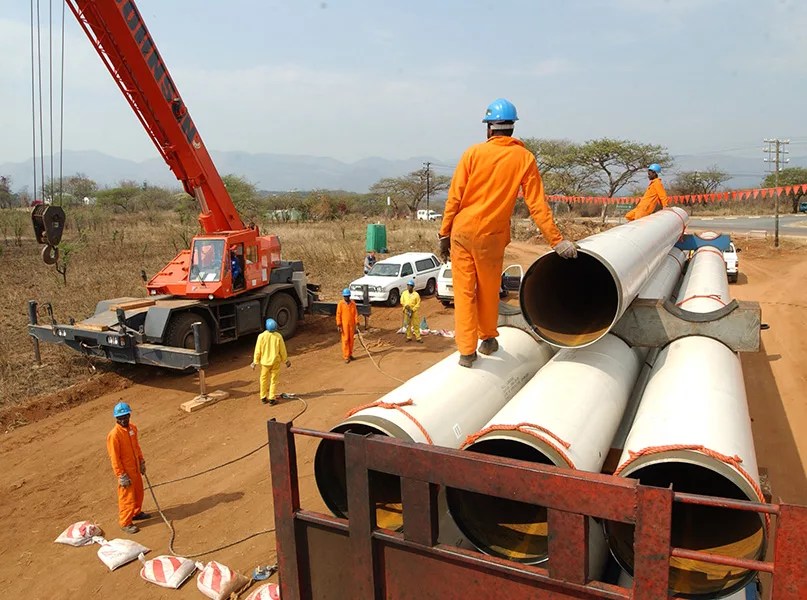
Construction of the pipeline began in 2002 and was completed in just two and a half years.
However, due to geographical difficulties, it initially faced challenges in developing the necessary infrastructure and extending its presence.
“Because of where we are, it’s difficult to get ahead of the market and start building, so you need to have the necessary demand beforehand to ensure that the expansion is worth it,” affirms Boyce.
Consequently, after recognising that there was a growing market in the region, the company extended its pipeline accordingly.
The first development project was the implementation of a compressor station which facilitated an additional 27 PJ per annum to the pipeline, before implementing Loop Line 1 in Mozambique and Loop Line 2 in SA, increasing the gas transmission capacity to approximately 212 PJ per annum and roughly about 1,200km of pipeline.
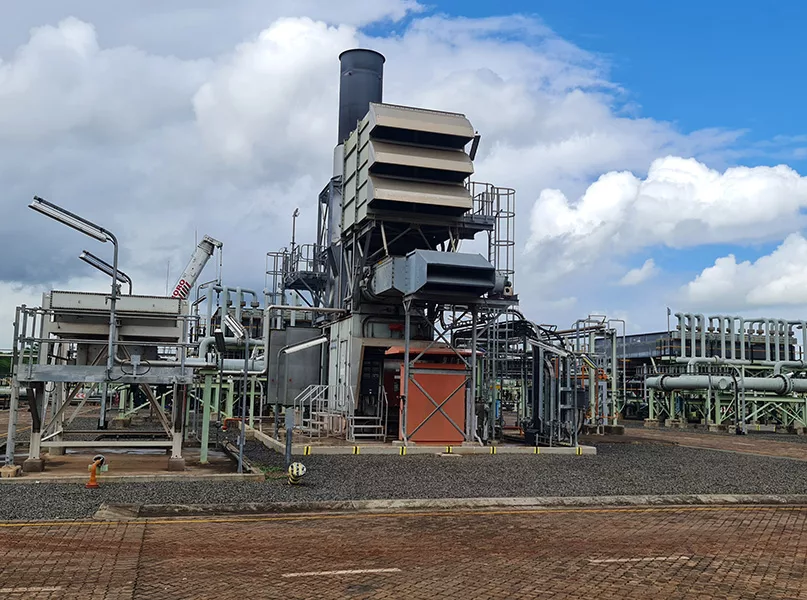
COMPREHENSIVE CROSS-BORDER OPERATIONS
Since its inception, ROMPCO has been a shining example of the successes that can be afforded by a public-private partnership (PPP).
In the early days of the pipeline, the governments of SA and Mozambique each owned 25 percent, whilst Sasol owned the remaining 50 percent.
Sasol sold part of its stake in 2021 to reduce its ownership to 20 percent, granting greater government ownership.
“The beauty of a PPP, not only in Africa but across the world, is that when government and private sector come together, there is a political will, which means that the projects in question usually move and progress quickly,” insights Boyce.
As part of the partnership, ROMPCO contributes the necessary financiers and skilled workers that are needed to build the pipeline. The government administration, meanwhile, aligns policy and regulation which helps to increase the productivity of a project.
PPP always benefits the government and citizens in the long run. The private sector normally provides the financial capital and skills for project development, which often outlive the financing period, leaving the country with developed infrastructure that is leveraged by its citizens.
The company’s cross-border operations and workforce provide a competitive edge, as it allows ROMPCO to be agile in catering to the different requirements of the two countries.
Its dual activity also means that the company has a varied customer base. In Mozambique, the majority of its shippers are owners of the gas molecules, whereas in SA its shippers are industry businesses.
Being part of a joint venture also means that the company must work hard to meet the standards of both the public and private sectors.
“We have to keep our stakeholders happy on a government-to-government level as well as on a business-to-government level. Being a part of this partnership means you have to navigate between these responsibilities,” asserts Boyce.
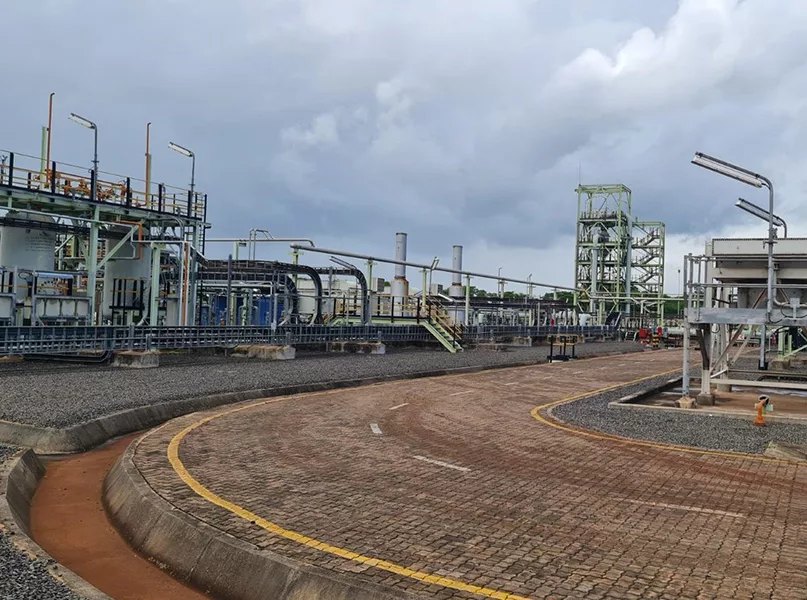
PROGRESSING THE PIPELINE
Currently, ROMPCO is committed to addressing depleting reserves in Mozambique, particularly in Pande and Temane, which offers the sole source of natural gas imported into SA. As such, the company is pursuing a tie-in for its pipeline that will enable the flow of LNG into SA and ensure a stable and robust gas supply for the future.
Additionally, ROMPCO is gearing up its pipeline for potential capacity expansion in preparation for an expected gas demand as a result of the South African government’s request for proposal for gas-to-power projects to produce 2,000 megawatts (MW) under the Gas Independent Power Producer Procurement Programme (GIPPPP).
Fortunately, the pipeline’s infrastructure was designed in such a way that the capacity could be expanded as and when the demand arose. Evidently, its capacity can be doubled, as indicated by hydraulics models created in preparation for the expansion.
ROMPCO estimates that it can guarantee approximately 205 to 212 PJ per annum, whilst the implementation of more loop lines can facilitate an additional 180 PJ annually.
The company also wishes to capture remote gas hotspots by introducing smaller virtual pipelines in Northern Mozambique. These would be used in cases where gas sources are 100 to 150km away from the main pipeline and having a significant secondary pipeline may not be economically feasible.
“Virtual pipelines allow us to take hold of a certain market, particularly in distant mining areas, and is part of our new way of thinking and diversification as a company,” highlights Boyce.
Elsewhere, ROMPCO is looking internationally for more flourishing investment opportunities. For instance, it has been engaging with different governments in Southern Africa where it believes it can provide pipeline assistance.
“We also strive to position ourselves as a leading gas transmission and gas infrastructure company. Given our experience over the last 25 years, we can provide significant knowledge in this area,” he adds.
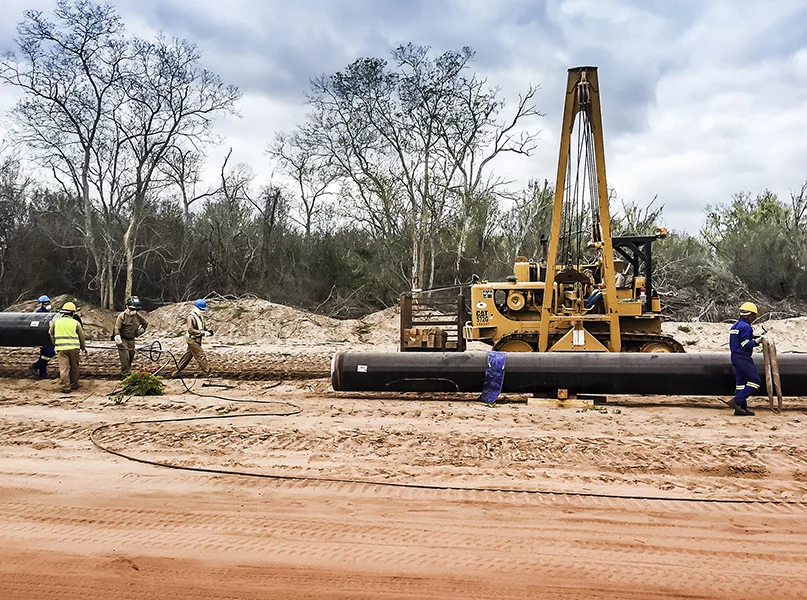
TACKLING INDUSTRY CHALLENGES
ROMPCO has maintained a symbiotic relationship with Sasol as its primary customer and operator. Indeed, in areas where the company can’t reach, it relies on Sasol and its relationship with the government to tap into these markets.
Government relations are also utilised by ROMPCO to assist in areas such as procurement and the in-line inspection process of its pipelines, the latter of which the company conducts every five years to monitor pipeline integrity.
This undertaking requires the support and expertise of many suppliers across Africa and the rest of the world, including Italy and the UK.
“Our partnership with the government means it is easy for us to obtain permits for workers and the movement of materials.”
ROMPCO has also focused on integrating small to medium-sized enterprises (SMEs) into the supply chain across Mozambique and SA in the last five years.
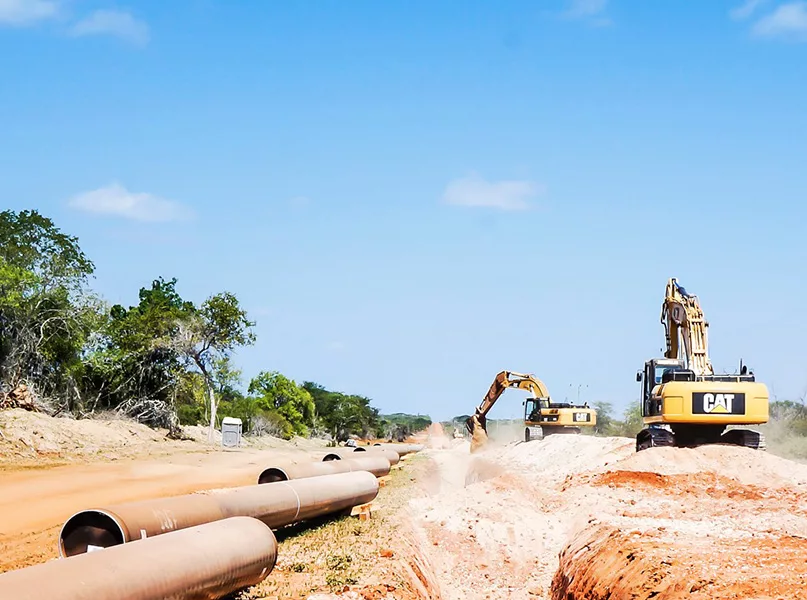
“We appoint the owners of SMEs who have not been in the industry long but have the necessary knowledge, and we partner them with larger companies so that skills are transferred across the two countries,” explains Boyce.
Although this can be a costly exercise, it means smaller business owners can efficiently run their companies with greater exposure and higher standards.
“We see this as a corporate social investment (CSI) from a developmental perspective rather than a project stance, advancing the overall landscape of the industry,” he adds.
This initiative is part of ROMPCO’s wider expansion plans going forward as it pushes to solve the problems caused by the emerging depletion of gas.
One of the company’s main priorities is to bring the right partners to the table and secure the long-term growth of LNG in SA.
ROMPCO also wishes to lead the conversation around what industry players can do to solve widespread oil and gas issues.
“There needs to be a discussion between governments around how we move molecules from the countries that have significant gas resources to the ones that are energy starved, and we are ready to lead that conversation,” concludes Boyce.



